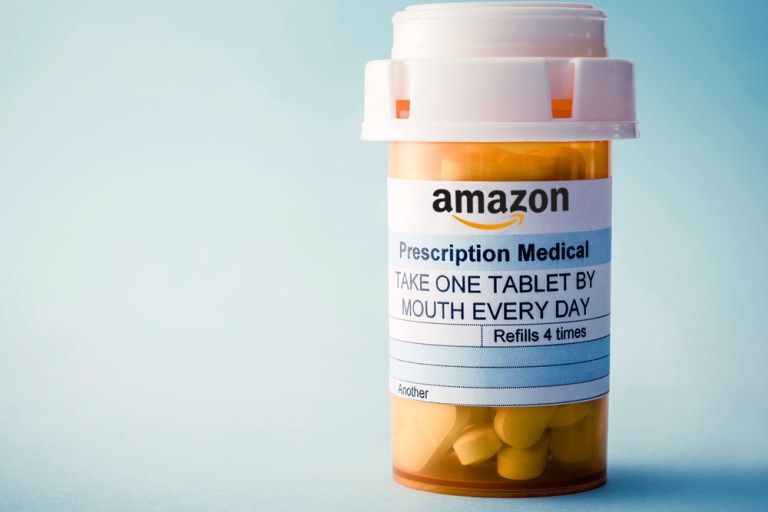Amazon Tracker: Raising The (Pop-Up) Bar

From teenagers to Tokyo, Amazon is perpetually looking for new ways to meet new consumers where they are. In this week’s tracker, the eCommerce giant raises the bar (the pop-up bar, that is), gives YouTube and pharmacies a run for their money, allows teens to shop independently while still giving parents visibility and control, and plans to deliver packages to customer’s trunks. Plus, Alexa learns the difference between you, your spouse and your kids.
Raising The Bar
Amazon is opening a pop-up bar in Tokyo’s Ginza district. For 10 days starting Oct. 20, it will be serving beer, wine, sake and cocktails to help promote sales of alcoholic products on its website in Japan. This is just the latest in a string of real-world moves by the eCommerce giant, which also included a handful of new brick-and-mortar bookstores and, of course, the blockbuster acquisition of Whole Foods Market.
The 78-seat bar reportedly offers drinks procured from around the world as well as exclusive products and samples. The ordering system is smart enough to suggest beverages and even dispense wine advice. The pop-up will be located within an easy walk of the district’s Emporio Armani store and the Apple and Louis Vuitton flagship outlets, reports said.
The Doctor Is In
Pharmacies such as Walgreens, CVS and Rite Aid saw tumbling stocks last Friday as news broke Amazon will likely move into the prescription drugs business over the next two years. The eCommerce giant said it will make the final decision by Thanksgiving.
Goldman Sachs speculates Amazon will likely focus on improving price transparency and cutting out-of-pocket expenses for consumers. A rumored entry into the mail-order pharmacy market could help people who are uninsured or have high deductibles pay cash for prescription drugs.
Enabling online sales and delivery of prescriptions could be a game changer and will likely disrupt the $560 billion pharma industry in a major way, analysts said. However, on top of the years of research Amazon typically invests before entering a new market, pharmacy executives said it will take 18 to 24 months for Amazon to get drug licenses in all 50 states, so don’t expect Walgreens to go out of business tomorrow.
Taking On YouTube
Amazon may be gearing up to unveil new initiatives that could lure advertisers and marketers to its video content platform as the company aims to take on YouTube. Executives have implied during several meetings that Amazon is more open to providing data to advertisers about what customers are doing and watching online. The company may also team up with video producers to create sponsored content.
One thing Amazon may believe it can do better than YouTube? Prevent offensive content from showing up next to ads, an issue that resulted in advertiser backlash against Google (which owns YouTube) earlier this year. Amazon has 310 million monthly active customers, while YouTube boasts 1.5 billion monthly active users. It could be a game-changer if Amazon shares with advertisers what customers are watching and match that data to shopping preferences.
Junk In The Trunk
It’s hard to say whether Amazon’s plan to deliver packages to the trunks of consumers’ cars solves more security concerns than it creates. On the one hand, deliveries will not be sitting out on a doorstep unattended all day long, so the likelihood of theft diminishes. On the other hand, customers will be giving strangers access to their cars.
Amazon is reportedly in talks with smart license plate maker Phrame to develop this new capability. Phrame’s product is, literally, a frame. It goes around the existing license plate and comes with a secure box for storing the vehicle’s keys. The vehicle owner can unlock the box using a mobile device — without being near the car — and can, therefore, provide access to others (say, delivery people) at any time. Amazon is also working on a smart doorbell device with a similar function.
Unattended Retail
Back in the day, it was a big deal for teens the first time their parents let them go to the shopping mall alone. Today, the equivalent of that may be parents letting teens shop on Amazon alone. The eCommerce giant has created a way for teens to enjoy shopping autonomy while parents still get the final say, as parental accounts holders must review and approve their teen’s purchases through the website.
Teens can leverage all the benefits of their parents’ Prime membership, such as free delivery. They complete the order themselves, but parents must respond to a text or email notification before the order can proceed. There is also a field for the teen to add notes like, “This is the book I need for class.”
As parents are ready to give their children more autonomy, they can throttle back the restrictions or simply set a spending limit instead of receiving a notification for every purchase.
Alexa Knows What You Did Last Summer
OK, not quite, but she does know who you are by the sound of your voice and can now distinguish between users in the same family. Echo devices allow up to six family members to create individual voice profiles by having each member read a series of 10 phrases aloud.
Alexa will use this knowledge to deliver a more personalized experience to different users on the same device. So far, the feature is available for calling, messaging, flash briefing, shopping and the Amazon Music Unlimited Family Plan, a company spokesperson said.